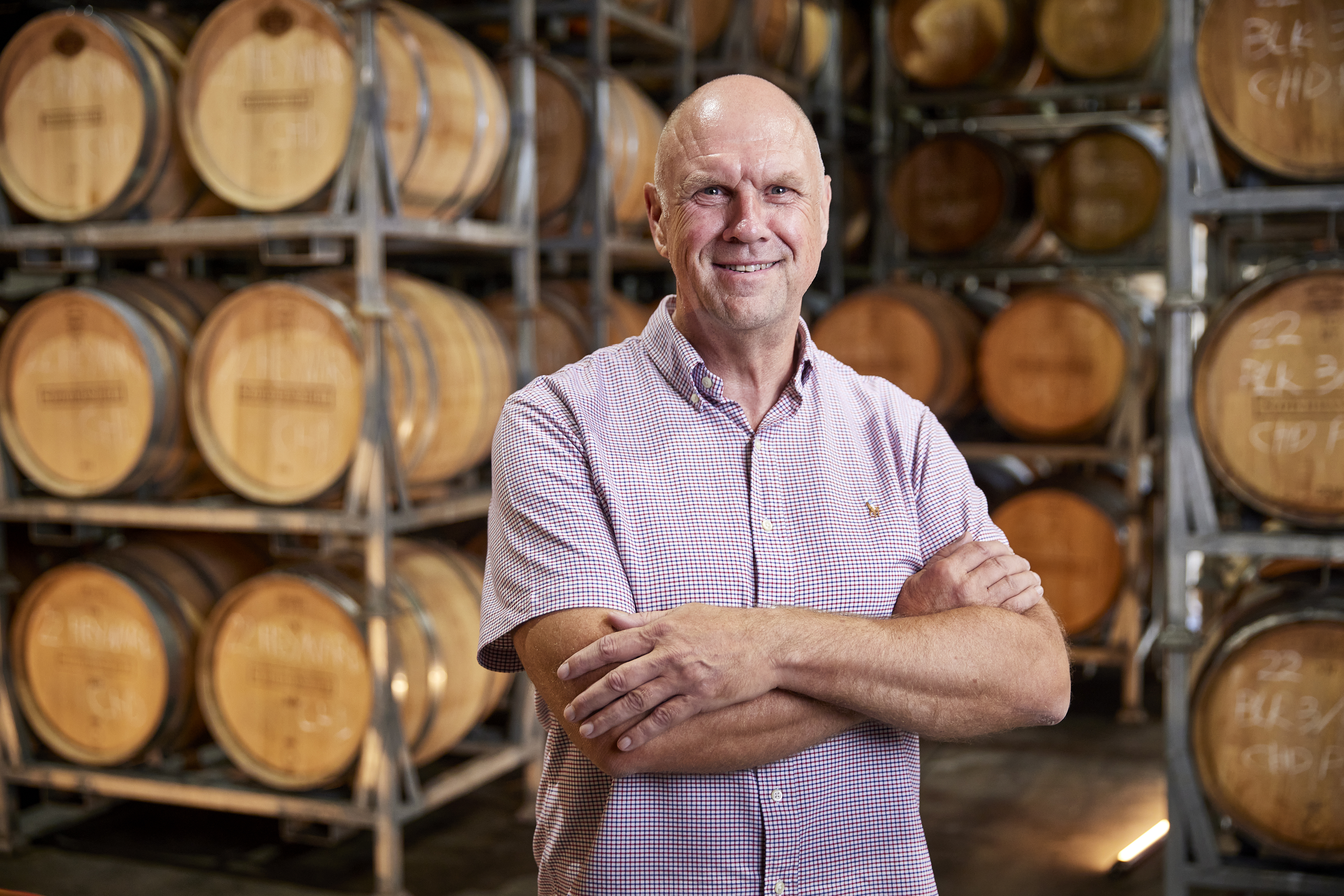
Robin Brockett
Chief Winemaker and Viticulturist
“I like to keep an open mind and try not to be influenced by traditional styles. I want the wine to have its own personality and reflect where it has come from.”
When did you realise you wanted to become a winemaker?
Originally, I wanted to do Agricultural Finance but as part of my course I had to work a year on a horticultural property. I worked at the first commercial winery in Canterbury near Christchurch and was bitten by the winemaking bug.
Please tell us about your career so far.
I have been working for more than forty years in the wine industry both here in Australia and New Zealand. I studied both viticulture and oenology at Charles Sturt University. As well as my time working in both countries, I have worked vintages in Burgundy as well as the Rhone Valley, France. I have also spent time in the United States travelling through some of their most iconic wine regions.
What do you love most about being a winemaker?
To be creative and deliver wines that keep changing and evolving over time. I love seeing people enjoying the wines that have been created. No two vintages are the same. I also love that winemaking, and styles keep changing and evolving over time. The emergence of new varieties and the changing demographics of wine drinkers means the wines produced are always changing. Winemaking is challenging and always keeps you on your toes.
What is your favourite wine, and what food do you typically pair it with?
This is a bit like asking who your favourite child is. There are a number of wines I love. Chardonnay and pinot noir are my favourites, but over summer I love drinking albariño. Chardonnay works well with poultry and creamy style dishes. Pinot noir can be drunk with nearly all types of food, from delicate flavours through to robust red meats. Albariño is fantastic with seafood, especially mussels, scallops and subtle flavoured fish.
Is there a specific process you follow when developing a new wine?
I like to keep an open mind and try not to be influenced by traditional styles. I want the wine to have its own personality and reflect where it has come from. I look at the food it will be best suited to as well as changing drinking styles habits that people want. I also want the wine to be something that I personally enjoy drinking.
Is there any vintage you’re particularly proud of creating? Why?
There have been so many great vintages that I have been privileged to be able to make over a long period of time. My personal standout was the 1992 vintage that put Scotchmans Hill on the map as a serious wine producer. 2015 and 2017 were also great vintages and the most balanced across all wines made within those years.
How does the local climate/soil affect the wine you make?
All vineyards have their own unique characteristics. In our instance we are lucky to have volcanic clay soils that deliver great structure to the wines. Coupled with being at the highest point on the peninsula and surrounded by the sea on all sides we have a unique maritime climate. With low rainfall we have a cool, dry environment that grows exceedingly high-quality grapes which delivers well-structured wines with finesse and balance.
Which of your own varieties do you typically indulge in?
Chardonnay and pinot noir are my go-to wines. I particularly like the Cornelius range which have great personality and truly display their sense of place.
Where do you see yourself in five years? How do you think your winemaking will evolve during this time?
On the golf course. Wine is always evolving. The wines we make today are very different from ten, twenty or thirty years ago. Each generation of wine drinkers look for different things in wine. Also, our food keeps evolving and wine needs to complement this. I think in general wines will be juicier and fresher.
From Wineries of Victoria – Issue 16, edited by Jess Muller
